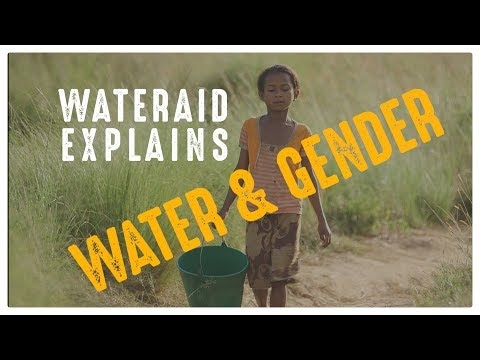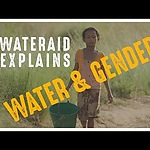Why are girls and women worst affected by a lack of clean water?
Typically responsible for unpaid domestic work, girls and women are often expected to collect water from unsafe sources like rivers, streams and holes in the ground.
Carrying full water containers, as heavy as 20kg, on their heads or backs leaves its mark on them physically, contorting their spines and leading to problems in childbirth and later in life.
Collecting water – often for hours every day – can make them late for school or unable to work, putting them at a disadvantage to men and boys.
And drinking, cooking and washing with this dirty water exposes them to deadly diarrhoeal diseases every day.
Why are decent toilets and good hygiene particularly important for those who menstruate?
Not having a decent toilet at home or in public places can be especially difficult for people who have periods.
It can put them at increased risk of harassment and physical and sexual violence while going to the toilet in the open.
It makes managing their periods much more challenging, causing children to miss school or people to miss out on earning opportunities.
Without clean water, soap or a toilet, keeping themselves and their family healthy is incredibly difficult.
Read here the whole article
Source: WaterAid - Girls and women

